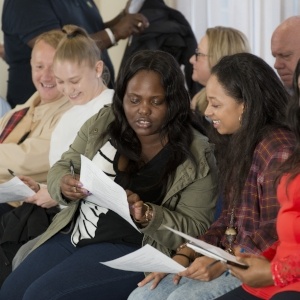There are a lot of buzzwords regarding mental health recovery that are bandied around. Mental health and wellbeing has never been bigger in the national media with the Young Royals championing the cause with their hugely successful Heads Together campaign.
However, one key component that Bridge Support has found to be vital in helping our clients recover, is the incredibly healing power of ‘peer support.’
Sheryl Mead, founder of the Intentional Peer Support organisation, defines peer support as: ‘A system of giving and receiving help founded on key principles of respect, shared responsibility, and mutual agreement of what is helpful. Peer support is not based on psychiatric models and diagnostic criteria.’
Essentially, it is allowing people with lived experience of mental health to re-enter the space to give freely to others who may benefit from their help and shared or similar experience. This founding principle has worked wonders in the field of addiction for many years. Alcoholics Anonymous is the most famous example of this principle, as ‘sponsors’ are peers who have succeeded in overcoming addiction one day at a time, and give freely of their experience to newcomers.
Mental health has benefited from the findings of addiction recovery
Nowadays, peer support has never worked better. The growth of recovery colleges in recent years is helping to fill the gap in mental health service provision between in-patient care and outpatients’ recovery within the community. Our Recovery College based at new premises in Woolwich, South East London, is highly successful in helping people in the community recover from periods of mental ill-health.
When our students are ready we offer them the chance to train as peer trainers. We define peer trainers as people with lived experience of mental health issues. Our peer trainers work alongside mental health professionals and co-devise as well as co-deliver the courses at the college.
Our peer trainers have excelled
Some of our peer trainers are making a positive impact in the community through voluntary positions while others are forging succesful careers in various employment and training opportunities. Here some of our peer trainers explain the benefits they have received in helping others recover:
Joelle
‘Being a peer trainer has helped me grow in confidence a great deal and given me good experience that I feel I can take into the workplace. It’s also helped my people skills. I am now assigned to deliver Beginner’s Meditation and Advanced Meditation. I am also currently volunteering at First Step Trust as a Garage Receptionist.I feel that one day I could go back to paid employment with all the experience I’ve gained. I’ve become more independent and confident and I’m so grateful to the college for that experience.’
Annie
‘Being a peer trainer gave me the confidence to apply for a volunteer job and I’m now working for The Stables, a carer’s centre. I am hoping to move more into community care while I’m there and I’d really like to gain paid employment from the experience.If I hadn’t come to the college I wouldn’t be where I am today. It’s given me another support network and I’ve made firm friends there.’
Lee Tanya
‘Doing courses at the college and becoming a peer trainer has given me the confidence to contact organisations about gaining work experience and I have now gained a full-time employment position. I never thought I’d be able to stand in front of a classroom and teach.’
Our Recovery College benefits from the ‘experts by experience’ that are peer trainers, and in turn, our peer trainers help many of our students recover and go on to succeed themselves. It’s a win-win situation and by harnessing the healing power of one person who has recovered talking to another, all those who have been striving for many years to turn the tide in mental ill-health, have now found a jewel in the crown of recovery.

